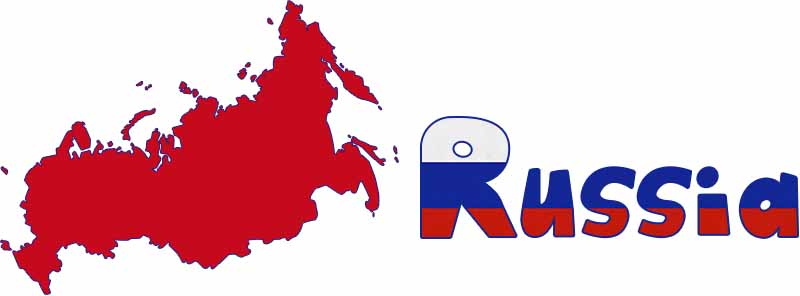Russia and VPNs have been in the news together a lot lately, thanks to the country’s official ban on most VPNs. Ironically, this means that you need a VPN in Russia now more than ever.
You’ll need to choose your VPN carefully, as many are blocked in Russia and others do sketchy things with your data.
But pick the right one and you’ll be glad you did. Here are 10 reasons why.
Top 10 Reasons Why You Need a VPN While in Russia
1. Internet Censorship in Russia is Pervasive
The Russian government maintains an internet blacklist — a list of websites that are blocked to all internet users in Russia.
At first, the list was made up of sites that contained child pornography and similar offensive content. But over time, it’s expanded to include sites that are “suspected of extremism” or that “violate the established order.”
These terms are so vague that they permit the government to block pretty much any website it desires. Blocked sites include the Internet Archive, Rutracker (a torrent site), LGBTQ sites and the video sharing site Dailymotion.
If you want to access any of these banned sites, you’ll need to use a VPN. Because it encrypts your traffic, Russia’ web filters won’t be able to stop you from viewing sites on the blacklist.
2. Your Ability to Communicate While in Russia May Be Limited Without a VPN
Russia clearly isn’t a fan of encryption and online anonymity — just look at its VPN ban for proof.
But that hatred of anonymity extends to popular messaging apps and social media sites, too.
In Russia, encrypted messengers like Telegram and encrypted email services like ProtonMail are blocked. Additionally, accessing the professional networking site LinkedIn is prohibited.
Using a VPN lets you get around these blockades and keep communicating through your channels of choice. If you’re sending sensitive messages that you want to keep private, a VPN is a must-have.
3. Russia Engages in Heavy Internet Monitoring
The Russian government is quite open about the fact that it monitors everything on the internet through multiple means.
ISPs in Russia are required to run software that allows the government to monitor internet traffic. It uses deep packet inspection to examine metadata and gather more information on your activity.
Additionally, public WiFi operators are legally required to collect your personal information, including your passport info, before letting you use the network.
It’s next to impossible to maintain your online privacy in Russia unless you use a VPN. Despite the heavy monitoring that goes on, a VPN’s encryption will keep your data secure.
4. You Could Go to Jail if You Say the Wrong Thing Online in Russia
Russia’s battle against “fake news” isn’t just symbolic: it can have real effects on your life, especially if you like to get political online.
In Russia, spreading so-called “fake news” online can net you a fine of up to $75 per incident. And if you’re a legal entity, that fine goes up to $15,000.
That’s not to mention what happens if you post anything that goes against Russia or Putin. Get caught doing that and you could go to jail for 15 days — just for making a post online.
Encrypting your data with a VPN will reduce your trackability and make it safer for you to express yourself online.
5. Anything You Do on a Russian IP Is Stored for Government Use
In Russia, telecom providers are legally required to store your web data, voice calls and messages for six months. They must also store your communications metadata for three years.
And under the Yarovaya law, the government has the right to access this data at any time, only needing a warrant after the fact.
Other than limiting the amount of personal info you provide to websites, using a VPN is your best line of defense. Hiding your IP address and other metadata makes your logs less accurate and less valuable to the government.
6. Streaming Is Much Easier with a VPN
If you’re traveling to Russia from another country, you’ll be leaving your favorite streaming content behind. Netflix and other sites don’t let you access the libraries you’re used to from abroad due to licensing restrictions.
But there’s a simple solution: use a VPN to change your IP address. Connect to a server in your home country and you’ll be able to get back to watching the movies and shows you love.
7. VPNs Protect You from Identity Thieves and Hackers
Despite the fact that all public WiFi users need to be registered and verified, hacking is still rampant in Russia. A hacker can connect to a public WiFi network and use sophisticated software to steal any data you transmit over the network.
However, if you use a VPN, that hacker will end up with a bunch of encrypted data that’s essentially useless to them. Your personal information and your identity will remain secure.
8. A VPN Makes Torrenting Safer
Russia may block many torrent trackers and sites, but that doesn’t mean torrenting is a thing of the past. You can still torrent — and do so safely and securely — with a VPN.
A VPN unblocks torrent sites and prevents your torrenting activity from being detected by government censors. It also obscures your true IP address so that copyright trolls can’t find you.
9. Your Web Activity Becomes Less Trackable with a VPN
Web trackers follow you around the web and let sketchy companies profit from your data by selling it to advertisers.
If you don’t want any part in this, a VPN can help. It lets you regularly change your IP address in seconds, making you less traceable and reducing the profits that third parties make off your browsing activity.
10. Work and School Networks Can’t Block Websites when You Use a VPN
As if Russia’s national website blacklist wasn’t bad enough, you’ll probably face even longer ones when you use your workplace or school WiFi. Social media sites, shopping sites and many others are often blocked on these networks.
But it’s easy to get around these blocks by using a VPN. Network censors aren’t effective against encrypted traffic, so you’ll be able to visit any URL you wish.



